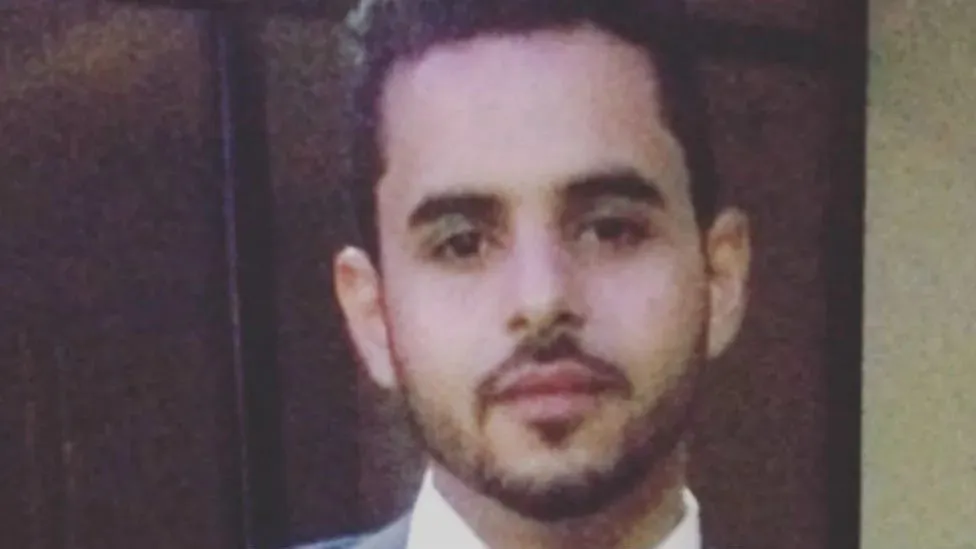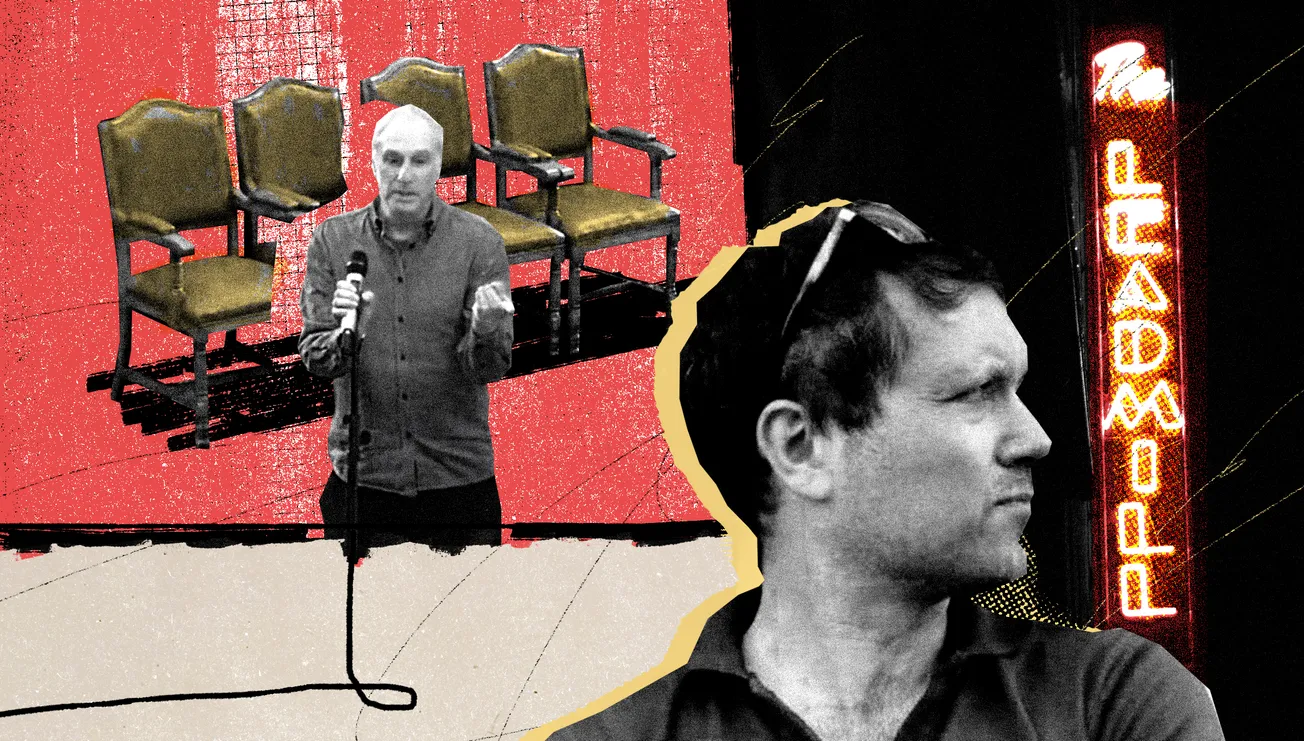More than a year after his murder, as his killers were sentenced to a minimum of 30 years each, Aseel Al-Essaie’s mother Aneasa told reporters she had “lost the feeling of happiness”. Aseel was killed in a drive-by shooting in Walkley outside his sister’s engagement party on 18 February 2017, a crime police believe was retaliation for a dispute between a “close associate” of his and one of his killers. According to Aneasa, it was not just her 23-year-old son that died that day, but her best friend, confidant and even her hopes and dreams. “No mother should have to endure the agony and suffering I have been through. I would not wish it on my worst enemy.”
Aseel’s brother, Ali, had been sitting in a car just yards away when he saw his brother was shot from point-blank range. “I tried to put him in my car but I could not do it, I was shouting for help,” he later told a court. On the way to A&E, where Aseel was declared dead on arrival, his brother “was not talking at all. He was making these weird noises. I think he was already gone."
Neither Aseel’s mother or brother — or anyone else from his family — appears in the episode of the true crime show Secrets of a Murder Detective dedicated to his death, which airs next Wednesday. They were aware the episode was being made, host Steve Keogh tells me, and if there was “any suggestion” they were uncomfortable it wouldn’t have happened, although he was not part of the conversation itself and can’t tell me what they thought. Instead, the show’s main interview is with former Detective Chief Inspector Steve Whittaker, who led the investigation and who calmly describes his own memories of that day.
The officers sent to the scene of the crime “were met with a bit of chaos really,” Whittaker says. Aseel’s brother, already grieving at hospital, “was very clearly upset”. He was also unwilling to say much about the three men he had seen, even though officers were certain he knew who they were. “I couldn’t get my head around that,” Whittaker tells Keogh, also a retired murder detective. “It was quite an unusual thing.”
The episode describes a pivotal moment in the investigation, when Whittaker visits the family home, has a frank chat with a number of Aseel’s relatives and persuades his brother Ali to give evidence after all. It’s an example of a senior officer going above and beyond, Keogh tells me, adding that he suspects “a lesser officer would not have solved that case.” As someone who has dealt with a lot of murder investigators, he found himself particularly impressed by Whittaker. “Sheffield is a worse place for him having retired.”
What neither Keogh or the episode mention is the seemingly quite important context that Ali’s refusal to cooperate had previously led to him being arrested, on suspicion of conspiracy to murder.

Secrets of a Murder Detective airs on a channel originally named CBS Reality, although it has since dedicated itself to a single genre and thus renamed itself TRUE CRIME. Available in over 26 million UK households, TRUE CRIME is “the biggest factual entertainment channel in the UK amongst adult women,” a press release for the show assures me. If you’re familiar with the phenomenon, typified by podcasts like My Favorite Murder, this will not be a huge surprise. Women, especially millennial women, are huge fans of content about other people’s grisly deaths. Aseel’s murder is not even the first Sheffield murder to be given the television treatment. Arthur Hutchinson, who killed a family of three in their home in Dore in 1983, became an episode of Forensics: Catching the Killer. The unsolved murder of Michaela Hague, stabbed 19 times, was featured on Shots TV.
True crime is not where Keogh expected to end up when he retired from the Metropolitan Police, he tells me. “I didn’t leave thinking I would be on TV. Quite the opposite, I hate myself on camera.” His original retirement plan was to set up a business going into companies and training their staff “on the skills you learn investigating murders,” such as problem-solving and decision-making. However, after writing a book about his experience on the force, he was invited to speak at CrimeCon, an annual convention for true crime fans in London, where he was scouted by the show’s producers.
On its website, CrimeCon says its events combine “hands-on learning with plenty of chances to have fun meeting speakers, podcasters, and other fans”. Nonetheless, it insists that respect for victims and families is always the most important consideration. “Hardly a day goes by that our team doesn’t think about the fact that we cover things that often involve the worst day of someone’s life.” However, it seems one person’s worst day is another person’s payday. Weekend tickets for the next edition of CrimeCon start at £245 per person, or £745 for a “platinum” ticket. Included in this package is a Personal Platinum Concierge, “who will devise your personal itinerary to ensure you get the most out of your experience,” and a post-event session with CrimeCon “to share your ideas on future content and cases to cover”.
I ask Keogh why he thinks people enjoy true crime, a question he tells me he receives a lot. “To be completely honest, I don’t watch true crime and never have, so I’m only guessing,” he says. His best theory is simply that murder is inherently fascinating. “Most of us would never kill anyone, so there's a fascination with why someone would take someone’s life.” I point out that anyone transfixed by this question would find little to interest them in Secrets of a Murder Detective, which barely discusses Aseel’s killers at all.

According to Keogh, this is by design. Phoenix Television, the production company behind the show, is “victim-oriented,” which distinguishes their shows from a lot of other true crime entertainment. “A lot of it is fascinated with the killer and that’s not what we are about,” he says. “We are fascinated with processes and the victim.” This is why most episodes feature interviews with the victim’s family, who are “the best people to speak” about what they were like. In the absence of Aseel’s loved ones, this episode focuses solely on the investigation techniques used to track his killers down.
“This is about educating people on what it’s really like, seeing conversations between police officers you would not normally be party to,” Keogh says. A lot of other true crime shows merely lay out the events of the murder, “the bullet points and facts,” but his show details “the hoops you have to jump through” to solve a crime. “We’re trying to show it’s not always easy, there’s lots of ups and downs. Mostly downs, to be honest.” It’s also personally important to him, Keogh adds, to “show that those investigating murder are normal people with normal challenges that really care about what they are doing”. It’s unsurprising, then, that the show brushed over Ali’s arrest, a detail that makes the police’s relationship with the family look far more troubled.
I have no doubt that Whittaker cared profoundly about getting justice for Aseel but, if communicating this fact was one of the goals of the episode, then it mostly falls short. Towards the end of the episode, Whittaker does speak briefly about his feelings while waiting for the verdict and after Aseel’s killers were found guilty. Throughout the episode, however, he speaks with the dispassionate tone of a consummate professional. “I actually never take it personally,” he tells Keogh at one point.
To be clear, this is not a criticism of Whittaker. Even Keogh concedes that investigating murders is impossible without a certain level of detachment. “You do have to ignore or forget about your own feelings because, if you don’t, you can’t do the job properly,” he says, before adding: “But that doesn’t mean it doesn’t affect you.” Dealing with families, seeing them at their lowest, was always the hardest part. “It never gets any easier to be around, you can’t switch off your empathy,” he says. “I tried to use it as a positive thing, to motivate me.”

After speaking to Keogh, it’s hard not to get the impression that he is a sincere person, someone who cares deeply about victims and their loved ones. He is most animated, for example, when discussing how poorly the court system treats them, often forcing them to sit in the same cramped waiting areas as the families of defendants or even — in the case of less serious crimes — the defendants themselves. While he is keen to stress that it is very important for witnesses to testify, he also admits that, if his own family member witnessed a crime, he “would tell them to be very careful about how they go about giving information or revealing themselves. It’s not easy to give evidence to a court.” I stress this point because I want to make it clear that I have nothing against him personally when I say I think true crime entertainment is opportunistic, tasteless and immoral.
A commonly-touted theory about why women, in particular, love true crime is because they’re more afraid of becoming victims. Psychologist Coltan Scrivner, a research scientist at Aarhus University in Denmark, is a particular proponent of this idea. On his personal blog, Morbidly Curious Thoughts, he writes that it “offers a simulation of an event for us to learn from and mentally rehearse. What would we do if we found ourselves at the mercy of a brutal serial killer? Would we find a way to survive?” To support his claim, he points to the results of a poll of 2,000 true crime fans, in which 75% agreed that consuming content about serial killers had “taught them how to avoid similar crimes happening to them”.
In my opinion, this theory is a convenient fiction. According to the same survey, half of respondents had a “favourite” serial killer, while 40% admitted they had found themselves attracted to a killer. As Rachel Monroe, an author and self-confessed true crime fan, writes in the Guardian, it’s not something fans “consume begrudgingly, for our own good”. No matter how much companies like CrimeCon purport to care about education and respect for victims, no one is shelling out hundreds of pounds for a ticket unless they find true crime entertaining. “I tended to prefer a different, more alarming hypothesis: perhaps we like creepy stories because something creepy is in us,” Monroe writes.
According to Keogh, he and the team behind Secrets of a Murder Detective “always try to be respectful” with every episode they make. “The way we think about it is, if we were with the family watching the episode, would we be comfortable doing that?” (When I ask if this is something the producers literally did with Aseel’s family, he says they were offered the opportunity to watch the episode, although he’s not sure if they took it.) Certainly, the episode about Aseel’s death is not ghoulish or in poor taste at any point, as far as I could tell.
But I’m not sure that’s enough. Aseel died just seven years ago, during a family celebration, in front of one of his closest’s relatives. His mother, by her own admission, was emotionally destroyed by his death. Even with their permission — or, at least, without their objection — does the fact that Secrets of a Murder Detective avoided being tasteless justify reopening this relatively recent and profoundly painful wound?
I point out to Keogh that a lot of other people that loved Aseel, such as his friends, weren’t given an opportunity to object to the episode and might come across it anyway. “Unless you’re featuring a murder from the 1800s, there will always be someone who knows the victim,” he says. “But, if you make it sensitively, I think that’s the best thing you can do.” He’s similarly disgusted by true crime that “has no consideration for families and victims” but he doesn’t think his show should be tarred with their brush. “I completely get there are concerns,” he says of the true crime genre, “but ultimately people are fascinated by it.”
Secrets of a Murder Detective airs Wednesdays at 10 pm on TRUE CRIME (formerly CBS Reality) through July in the UK. Aseel Al-Essaie's episode premieres on 5th June.

Comments
Sign in or become a Sheffield Tribune member to leave comments. To add your photo, click here to create a profile on Gravatar.







